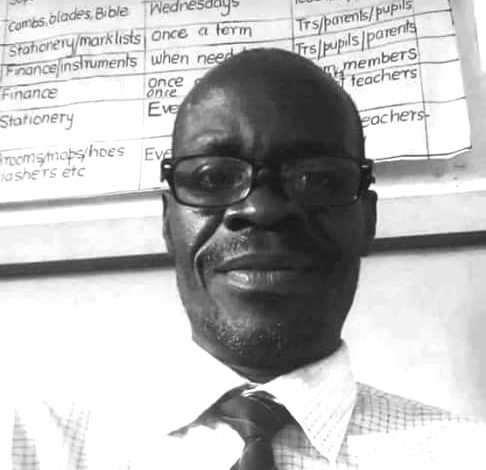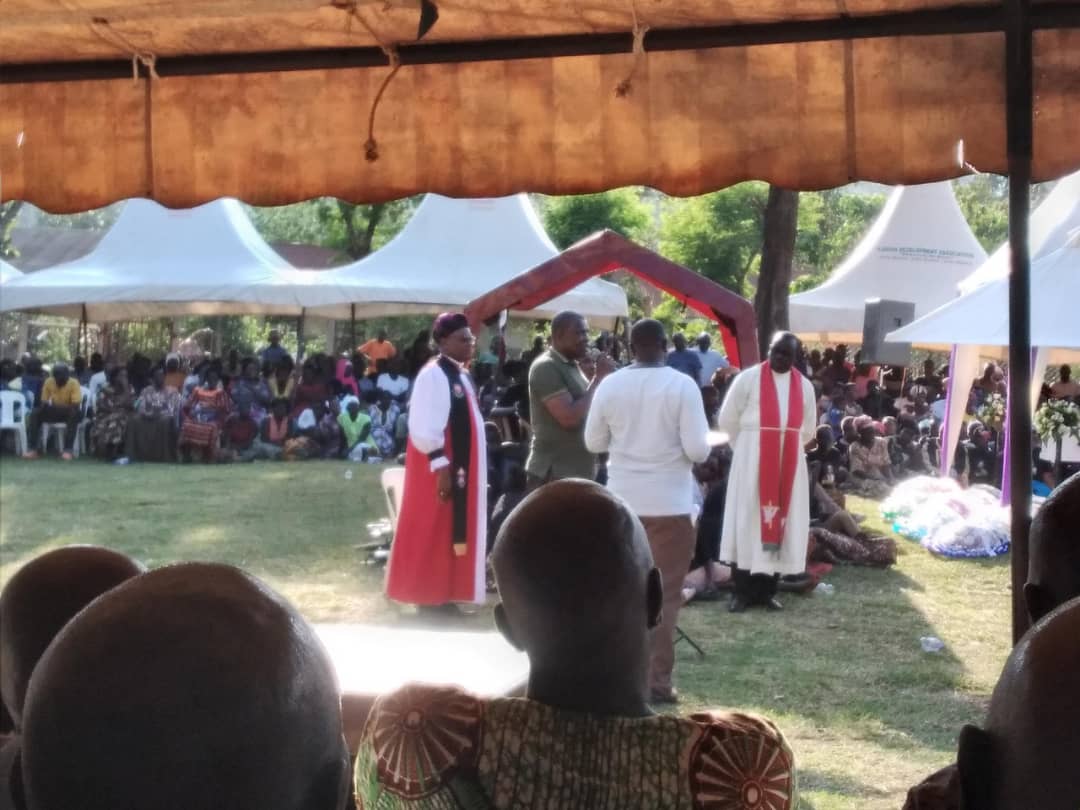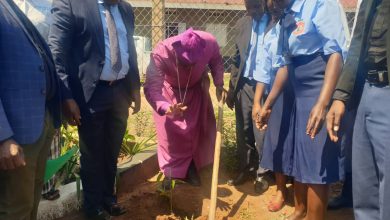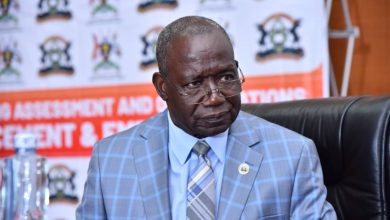The Teacher Who Cut Off My Long Fingers

Education
His ability to weave culture, music, and storytelling into education speaks volumes about his dedication. The image of students walking long distances to bask in his presence underlines the magnetism of a great teacher.
One of my worst childhood habits caught up with me decisively in 1994 while in Primary Five. After stealing two mathematical sets from fellow pupils, Mr. Joseph Waniba investigated the matter for days until he got to the bottom of it.
It would be my last time stealing. In a way, he had successfully ended the habit both at home and away.
“Do you know why I treasure you as a teacher?” I asked him two years ago at William Estate Primary School (the one along the Jinja-Iganga Highway as you approach Magamaga).
I had called on Mr. Waniba to bid him my greetings after years of not seeing him. He had been training his pupils ahead of the sports day, and he was so happy to abandon it all and give me his time.
Mr. Waniba grinned and tried to think of something to answer what I had posed.
“That time you exposed me for stealing a set—it was the best thing a teacher ever did to me because it changed me completely. You changed me,” I said.
He laughed heartily, his husky voice filling the air around us.
At the time, he was retiring, though he would be retained on contract, having scaled the blackboards from a junior teacher in 1990 to headteacher.
The events of 1994 in Primary Five were crazy. I had this habit of stealing pens, books, and every scholastic material I could lay my long fingers on.
At home, loose change and beans would not survive me. At some point, my mother even started keeping the beans pot high in the wardrobe because I kept dipping my fingers in it.
Once, a wardrobe collapsed on me while I was climbing up for beans. It crushed my left thumb so badly the nail has never grown properly since.
Then came Mr. Waniba’s investigation. For about two days, he kept digging around. He questioned many pupils from our class over the missing sets, and he seemed to suspect me.
When he found one set, with overwhelming evidence pointing to me, he gave me two kibokos out in the field and ordered me to tell where I had kept the second. He dragged me to the school office, but instead, I used the chance to jump over the fence and run home.
For nearly a week, I stayed away from school. My father was informed and summoned. He ordered me back to school, but I would leave home and hide in the sugarcane fields.
When he got tired of my antics, he put me on his pikipiki and rode to the school, leaving instructions that I be punished and that a report be sent to him confirming so.
During a school assembly, they called me forward. They announced my misdeeds, condemned them, and then a strong chap was asked to step forward.
After four good strokes of the cane and the shame, I walked back to class carrying the ghosts of my actions and swore to never steal again.
For years, I hated Mr. Waniba. I couldn’t believe he had done that to me.
You see, Mr. Waniba and I grew up in the same staff quarters. He was older but part of the family in that part of the estate.
His cousins were my playmates, and his youngest brother, Malisi, was the darling of every child. Malisi would huddle us together every evening for his round of storytelling and riddles.
This guy never ran out of stories, and each had a song that made listening to him so enjoyable. I still recall many of them.
There was Labour, Yeka, Mande, and others in that family of Mzee Matatia, but it was Waniba and Malisi I can never forget. The two talked a lot and both loved music. While Malisi was the unofficial DJ on siku kuu (big days) like Christmas and Easter, Waniba was all about the church.
He was a member of the Anglican St. Stephen Church choir and taught MDD in school during the days when education went beyond the classroom.
Into Education
 Rev Canon Paul Hannington Suubi, bishop of East Busoga Diocese, leads the requiem mass
Rev Canon Paul Hannington Suubi, bishop of East Busoga Diocese, leads the requiem massIn 1990, Waniba joined Kakira Estate as a teacher. He was posted to Chicco Primary School, one of the eleven primary schools Kakira built for dependents of its workers.
His posting to Chicco saw many of us abandon nearby schools to walk eight kilometers daily instead. He was like fire, and we were the moths.
For the next three years, many pupils braved the morning cold to walk long distances, with Mr. Waniba singing or telling them stories along the way—and back.
In 1994, he was posted to Karongo Primary School, where he made his mark on my life. He taught me English, Mathematics, Social Studies, and MDD.
But he really taught me a life lesson.
His MDD was straight from the heart. Because his next-door neighbors were of Rwandan origin, at some point, many pupils thought he was a Munyarwanda or Burundian because of how well he taught the cultural dances of those ethnic communities.
There was something called Nkuranguja that involved jumping sweetly, madly, deeply. When he brought that to the school’s MDD menu, there was no doubt no school would beat us—and none did.
The other half of Waniba was loved in the church. Always grinning and ready to offer a note that shook the birds in the trees above, he dedicated his life to the St. Stephen Church choir like it was his baby.
In recent years, this is where we met whenever there was an event that drew the Catholic in me into the Anglican church.
The last time I saw him, he was admitted to a clinic in Bugembe with swollen legs. He introduced me to his sister and daughter and told them of the good old days.
Mr. Waniba was battling something that looked like a serious kidney problem because his entire body was swollen. If not for his trademark mirth and grin, I wouldn’t have recognized him.
He said his trousers had stopped fitting but that after medication, the swelling had subsided. A lot of water had been removed from his body, he said.
A quick search on Google suggested something serious. I asked him about it, but he maintained the doctor had done tests and given him a clean bill of health. He was due to be discharged the following day.
Months later, news broke that Mr. Waniba had been admitted to Mulago Hospital and was due for dialysis.
On Wednesday, December 6, Joseph Waniba’s life lessons became a legacy as he succumbed to renal complications at the age of 56.
A funeral at his family home in Nairo village, Kakira Parish, saw the choir members he left behind in tears as they sang dirges to welcome his casket for a final call on the home.
Mr. Waniba was not merely a teacher but a figure who shaped character, bridged communities, and left behind an indelible impact.
His ability to weave culture, music, and storytelling into education speaks volumes about his dedication. The image of students walking long distances to bask in his presence underlines the magnetism of a great teacher.
Even in his health struggles, his resilience and humour shone through, leaving an enduring legacy.
Mr. Waniba’s passing marks the end of an era for many who knew him, yet the values he instilled and the lives he touched continue to honor him.
His funeral, somber yet reflective of his life’s influence, stands as a testament to the powerful imprint of a teacher’s love, discipline, and humanity.




